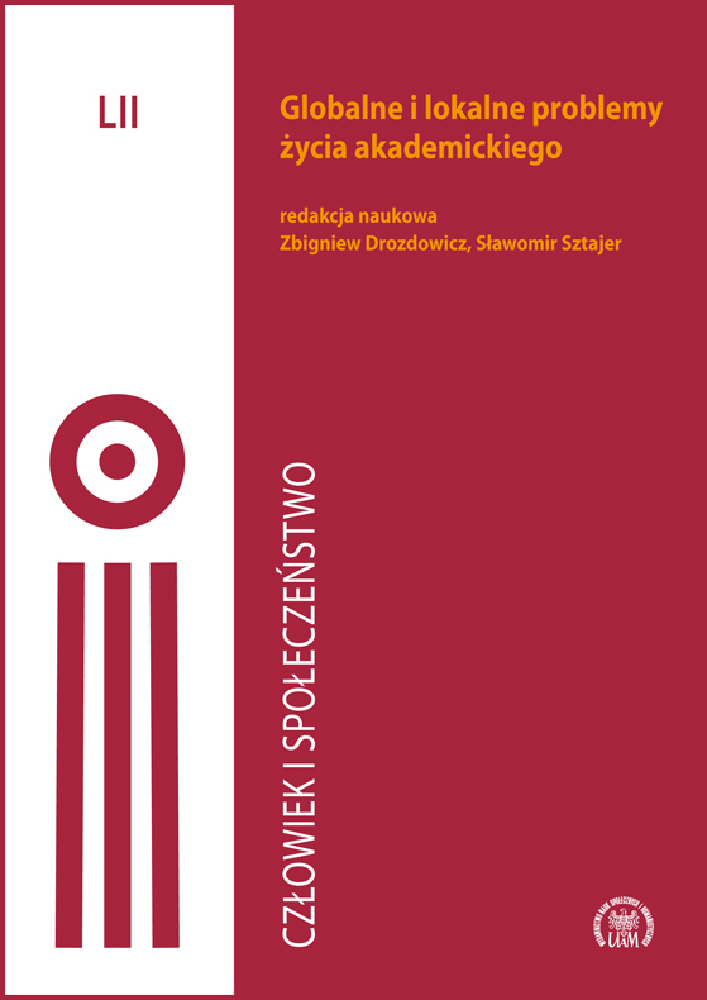Abstrakt
In the coming time, the innovative success of customer service will depend on having a data- driven strategy. Automation will play a key role in employee service initiatives. The progress and implementation of robot-based process automation, as well as machine learning, artificial intelligence (AI), the Internet of things (IoT), and the construction of the fifth generation 5G network will be important. Trends such as gamification, Big Data and AI are visible. Thanks to this, the right vision is created, supported by the necessary technical knowledge, to implement solutions that open the gate of undiscovered business potential. Modern technology is also becoming a tool of public surveillance. The aim of the study is to present artificial intelligence and the Internet of things as well as the construction of the fifth generation – 5G networks in the face of innovative challenges resulting from the economic crisis caused by the COVID-19 pandemic.
Bibliografia
Baldwin, R., Weder di Mauro, B. (red.) (2020). Economics in the Time of COVID-19, A VoxEU.org Book, CEPR Press.
Baldwin, R., Forslid, R. (2020). Globotics and Development: When manufacturing is jobless and services are tradable. CEPR Discussion Paper, 14293.
Baldwin, R., Evenett, S. (2020). COVID-19 And Trade Policy: Why Turning Inward Won’t Work. London: CEPR Press.
Bieliszczuk, B. (2020). Załamanie cen ropy naftowej – konsekwencje gospodarcze i politycz-ne. Biuletyn PISM, 71(2003).
Bussel, J. (2011). Explaining cross-national variation in government adoption of new technol-ogies. International Studies Quarterly, 55(1), 267–280.
Camacho, J.A., Rodríguez, M. (2004). The Role of Services in the European National Innova-tion Systems: Are They ‘Real diffusers’?, Department of Applied Economics. University of Granada, DRUID Summer Conference 2004 on Industrial Dynamics, Innovation and Development Elsinore, Denmark, June 14–16, 2004.
Cellary, W. (2019). Przemysł 4.0 i Gospodarka 4.0. Biuletyn Polskiego Towarzystwa Ekono-micznego, 3(86), 48–52.
China Statistical Yearbook 2019 (2019). http://www.stats.gov.cn/tjsj/ndsj/2019/indexeh.htm (dostęp: 9.01.2021).
Chińska gospodarka zapomniała o pandemii. PKB kraju wzrosło o 4,9 proc. (2020), 19.10.2020. https://forsal.pl/swiat/chiny/artykuly/7981796,pkb-chin-iii-kwartal-2020-wzrost-gospodarczy-chiny.html (dostęp: 8.01.2021).
Cooke, P., Leydesdorff, L. (2006). Regional development in the knowledge-based economy: The construction of advantage. Journal of Technology Transfer, 31(1), 5–15.
Chen, T.-Y., Tsai, M.-Ch., Chen, Y.-M. (2016). A user’s personality prediction approach by mining network interaction behaviors on Facebook. Online Information Review, 40(7), 913–937.
Czym jest technologia 5G i czy jest bezpieczna? Fakty i mity dotyczące nowej generacji sieci (2020). https://geex.x-kom.pl/wiadomosci/czym-jest-technologia-5g-i-czy-jest-bezpieczna-fakty-i-mity-dotyczace-nowej-generacji-sieci/ (dostęp: 19.01.2021).
Domm, P. (2020). Jobs data shows millions went back to work but unemployment rate for May is still expected at 20%, CNBC, 28.05.2020, www.cnbc.com (dostęp: 20.08.2020).
Eagle, N., Pentland, A. (2014). Combined short range radio network and cellular telephone network for interpersonal communications, MIT ID: 10705T, US US7877082B2, filed May 6, 2004, and issued September 19, 2014, https://patents.google.com/patent/US20150006207A1/en (dostęp: 10.07.2015).
Egan, M. (2020). Is the bear market over? Wall Street isn’t so sure, CNN, 19.05.2020, www.edition.cnn.com (dostęp: 15.11.2020 ).
Frączyk, J. (2020). Potężne załamanie w amerykańskiej gospodarce. Powtórka z Wielkiego Kryzysu. https://businessinsider.com.pl/finanse/makroekonomia/pkb-usa-w-ii-kw-2020-skurczyl-sie-o-jedna-trzecia-zalamanie-na-miare-wielkiego (dostęp: 30.12.2020).
Hirsch, R. (2020). Pięć najciekawszych tematów gospodarczych teraz, Business Insider, 1.06.2020, www.businessinsider.com.pl (dostęp: 15.11.2020).
Internet Rzeczy i sztuczna inteligencja zmienią firmy na całym świecie. Znamy nowe dane (2020). Ostatnia aktualizacja: 22.12.2020. https://www.polskieradio24.pl/42/273/Artykul/2645989,Internet-Rzeczy-i-sztuczna-inteligencja-zmienia-firmy-na-calym-swiecie-Znamy-nowe-dane (dostęp: 12.01.2021).
Guangyuan, L. (2020). Pogłębianie reform i rozwoju w Chinach – okazja dla całego świata, 11.06.2020. http://www.chinaembassy.org.pl/pol/dsxx/dshd/t1787958.htm (dostęp: 9.01.2021).
Kalwasiński, M. (2020). Chiny: kryzys i po kryzysie? Bankier.pl, 16.07.2020. https://www.bankier.pl/wiadomosc/Chiny-kryzys-i-po-kryzysie-7926337.html (dostęp: 20.12.2020).
Kilic, K., Marin, D. (2020). A New Era of World Trade: Global Value Chains and Robots. München: TUM School of Management, Technische Universität München, Mimeo.
Klein, N. (2007). The Shock Doctrine: The Rise of Disaster Capitalism. New York: Picador.
Olszewski, D. (2020). Kompendium 5G – wszystko, co musisz wiedzieć o nowej generacji sieci, 17.08.2020. https://www.pcworld.pl/news/Kompendium-5G-wszystko-co-musisz-wiedziec-o-nowej-generacji-sieci,422226.html (dostęp: 19.01.2021).
Kugiel, P. (2020). Zagrożenie pandemią COVID-19 w państwach rozwijających się. Biuletyn PISM, 70.
Kupchan, Ch.A. (2014). Unpacking hegemony: The social foundations of hierarchical order. W: G.J. Ikenberry (red.), Power, Order, and Change in World Politics. Cambridge: Cam-bridge University Press.
Lee, A. (2020). China debt: How big is it, who owns it and what is next? South China Mor-ning Post, 19 maja. www.scmp.com (dostęp: 20.12.2020).
Mazurek, M. (2020). Chiny otrząsnęły się z koronawirusa. PKB w górę o 4,9 proc. W G20 mogą być jedyne ze wzrostem w tym roku, 19.10.2020. https://next.gazeta.pl/next/7,151003,26410771,chiny-ostrzasnely-sie-z-koronawirusa-pkb-w-gore-o-4-9-proc.html (dostęp: 8.01.2021).
McKibbin, W., Fernando, R. (2020). 15 mln ludzi umrze, gospodarka straci biliony. Oszaco-wano szkody, które może przynieść koronawirus, 6.03.2020.
Licencja
1. W momencie złożenia pracy celem rozpoczęcia postępowania w sprawie publikacji, Licencjodawca, zwany dalej Autorem, akceptuje wszystkie zasady umieszczone na stronie internetowej czasopisma “Człowiek i Społeczeństwo”, udzielając Licencjobiorcy, zwanego dalej Wydawcą, niewyłącznej i nieodpłatnej licencji na korzystanie z Utworu. Licencja zakłada tym samym brak ograniczeń terytorialnych, czasowych oraz ilościowych na następujących polach eksploatacji (art. 50 ustawy z dnia 4 lutego 1994 r. o prawie autorskim i prawach pokrewnych):
a. utrwalanie Utworu;
b. zwielokrotnienie Utworu drukiem i w wersji cyfrowej;
c. wprowadzenie do obrotu, użyczenie lub najem oryginału/zwielokrotnionych egzemplarzy Utworu;
d. publiczne wykonanie, wystawienie, wyświetlenie, odtworzenie oraz nadawanie i reemitowanie, a także publiczne udostępnianie Utworu w taki sposób, aby każdy mógł mieć do niego dostęp w miejscu i w czasie przez siebie wybranym;
e. włączenie Utworu w skład utworu zbiorowego;
f. wprowadzenie Utworu w postaci elektronicznej na platformy elektroniczne lub inne wprowadzenie Utworu w postaci elektronicznej do Internetu, Intranetu, Extranetu lub innej sieci;
g. rozpowszechnianie Utworu w wersji elektronicznej w Internecie, Intranecie, Extranecie lub innej sieci, w pracy zbiorowej, a także samodzielnie w formule Open Access w oparciu o licencję Creative Commons Uznanie autorstwa 4.0 Międzynarodowa Licencja Publiczna (CC BY 4.0), a także inną wersję językową tej licencji, lub którąkolwiek późniejszą wersję tej licencji.
2. Założenia licencji Creative Commons Uznanie autorstwa 4.0 Międzynarodowa Licencja Publiczna (CC BY 4.0), udzielają Wydawcy upoważnienia do kopiowania, zmieniania, rozprowadzania, przedstawiania i wykonywania Utworu jedynie pod warunkiem uznania autorstwa.
3. Wraz z dostarczeniem Utworu, Autor zobowiązuje się do wypełnienia, podpisania oraz odesłania skanu umowy

